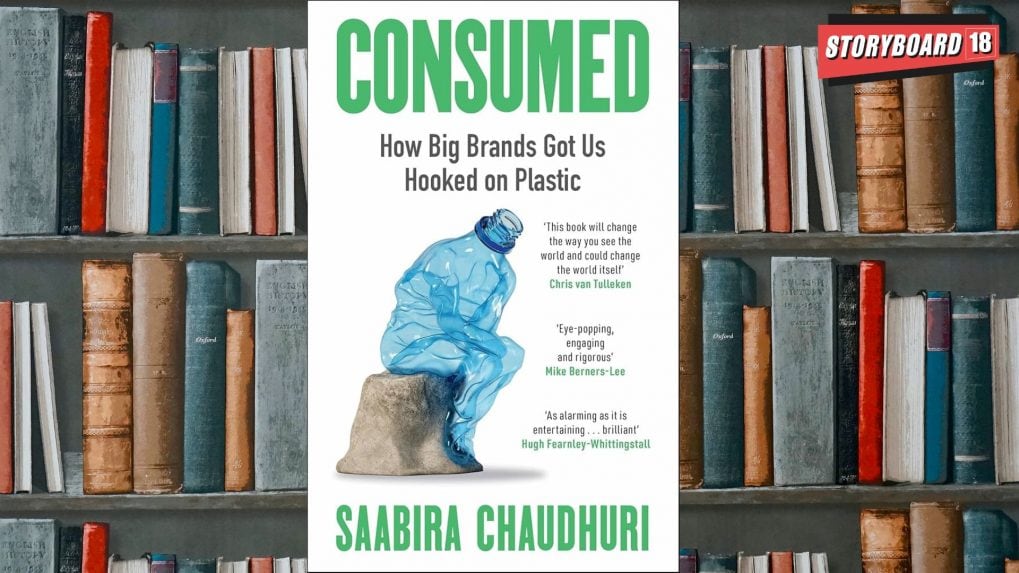How it Works
WPP, Havas, Omnicom: Are advertising’s biggest holdcos recasting agencies as AI Operating Systems?

How consumers got consumed into plastic
Publicly traded companies are part of a system that binds them to maximizing profit for shareholders. Can the same system hold the companies accountable for taking better care of the environment?
This is the big question author Saabira Chaudhuri is asking us in ‘Consumed.' She awakens us to fantastic facts like Germany recycles 60 percent of its plastic waste due to the ‘polluter pays’ principle. For most of the world, it is 'consumer pays', because unknowingly, we pay not only the cost of disposal, but also environmental and social costs.
Here are are our five #BookStrapping insights
1. Who is author Saabira Chaudhuri and why should we take this book seriously? “I’ve covered consumer goods companies for the Wall Street Journal in London since 2015. In 2018, I began writing about how many of these large companies were facing a backlash from consumers who were waking up to the damage that single-use plastic packaging was having on our environment,” Chaudhuri said. Makes sense.
2. Why this book? Chaudhuri explained, “It felt impossible to write a single article in which I could lay out how complex the issue of plastics was: our deep dependency on it (for which there are very good reasons), the way it has rewired our everyday behavior, the deeply fundamental problems that have always plagued plastics recycling."
Further, she added, "It also includes the conflicts of companies being bound by law to maximize profit for their shareholders, the problems with so-called green alternatives like biodegradables, paper, bio-based plastic, the issues with landfilling, incineration of plastic etc." Makes sense again.
3. The book is pushing for viable solutions. Since the time branded consumer packaging was first launched in 1899, supermarkets have grown to love plastics because it aids ‘eye appeal, attractiveness, the stimulus to impulse buying with transparent wrapping can impart to consumer goods.
The problem is that even though we are wired to pay for ‘higher performance and convenience’, choosing only convenience became cheaper and cheaper. Choosing convenience without paying more for it, became the biggest selling point for large scale adoption of plastic.
4. So, if the big brands have to fall in line, we have to level the playing field, said Chaudhuri. “We need ‘single-use’ to be as expensive as reusables,” she said. Beyond short term green-publicity, real change happens when returning and re-using is as convenient as single-use plastic. This is a matter of legislation, lobbies etc; and brands will have to spend the same amount of money to ‘unhook’ us, as they did to ‘hook us’ to disposables. True.
5. The power of the consumer to effect change exists. But how potent is it? And to what extent can the consumer truly be educated to make the right choice, after reading labels like ‘compostable’ and ‘biodegradable’? I noted many questions down as I read the book-Where do the diapers we use end up? Does India have enough garbologists too? Can alternatives to plastic help the problem of landfills filling up? How anxious do we really need to be, about the future of plastics?
The book has a striking cover, which is an important achievement, given the deluge of books that are released every month. The content is earnest in its data crunching- sample this; in the 1990s, India had 16% of the world’s population, 28% of its hair and yet sold just 3% of the world’s shampoos! This accelerated the war of sachets and the rush to reach them to the remotest areas; all packed in plastic of course!
There are similar narratives tracing the explosion of plastic across several brands and product categories; I had my own aha moment, reading the narrative of how disposables took over our lives over time. Understanding the problem is often the biggest part of solving it. Isn't it?
Reeta Ramamurthy Gupta is a columnist and bestselling biographer. She is credited with the internationally acclaimed Red Dot Experiment, a decadal six-nation study on how ‘culture impacts communication.’ Asia's first reading coach, you can find her on Instagram @OfficialReetaGupta.
From purpose-driven work and narrative-rich brand films to AI-enabled ideas and creator-led collaborations, the awards reflect the full spectrum of modern creativity.
Read MoreThe Storyboard18 Awards for Creativity have unveiled a Grand Jury comprising some of India’s most influential leaders across advertising, business, policy and culture, positioning it among the country’s most prestigious creative award platforms.